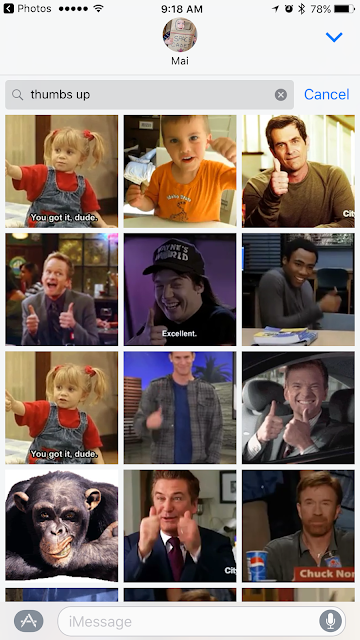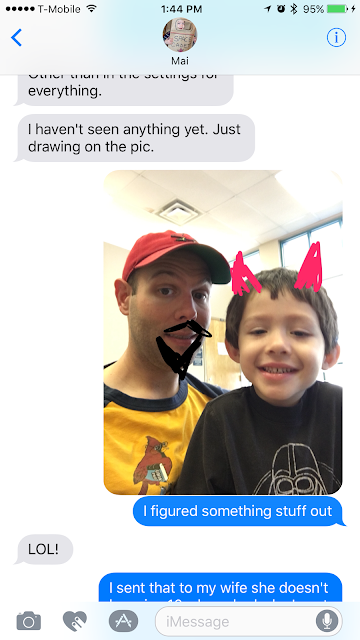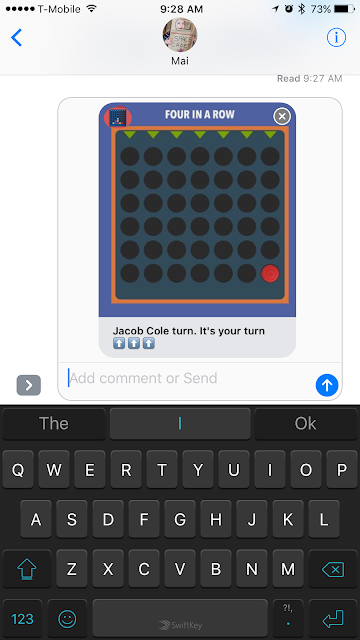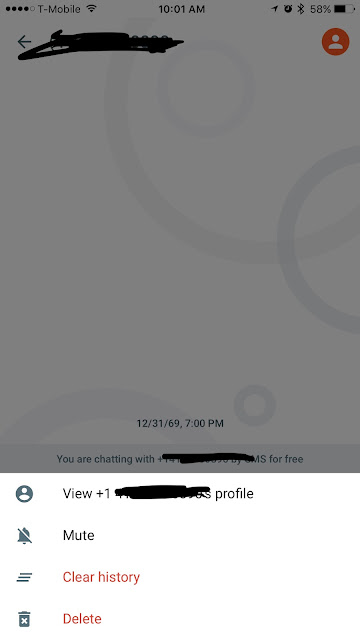Last week Apple came out with one of their biggest updates
to their mobile operating system called iOS 10. This update added a lot of
different functions but by far the most talked about was the changes to its
Messages app.
I took a bunch of screenshots of a conversation I had and
tried to show all of the different things you can now do.
You can add memes.
Add stickers to a conversation or a photo.
Draw on a photo.
Send message effects.
Send in Loud, Gentle, and what I thought was really cool…
invisible ink.
You can play games in your messages.
There are Digital Touch options like sending your heart beat, a burst, drawings, and much more
Canvas, Evernote, and other productivity apps have Message
features so you can share easily.
I could go on and on but this week Google came out with
messaging app called Allo. It has some of the same functions that Apple’s
messages.
Change font size.
Share location.
Send audio.
Stickers (but not really as good a selection as Messages)
Its artificial intelligence suggests responses based on your
What really makes it special is the Google Assistant. It can
find restaurants, movies, and weather.
You can have it pull up your travel
data. It can play a game with you.
You can delete your conversations, block users, and more in your settings.
Talking with a friend that has an Android phone I found out that there are certain functions like sending files from Google Drive or Google Photos from within the app only available on Android. Allo is not available on desktop devices or older Android devices. Apple's Messages for iOS 10 only works on iPhone and iPad so all of the functions are not available to non-Apple users or at this time on the Mac.
One of the issues that some technology reporters have called
“disappointing” and “concerning” is that Google is storing and tracking users’
conversation data. There is an “Incognito” mode where messages are encrypted
end-to-end, meaning that it is private but you have to set that up for each
conversation you begin. Many people feel that privacy should be by default. In
contrast, Apple does not collect, store, or view conversation data.


































































